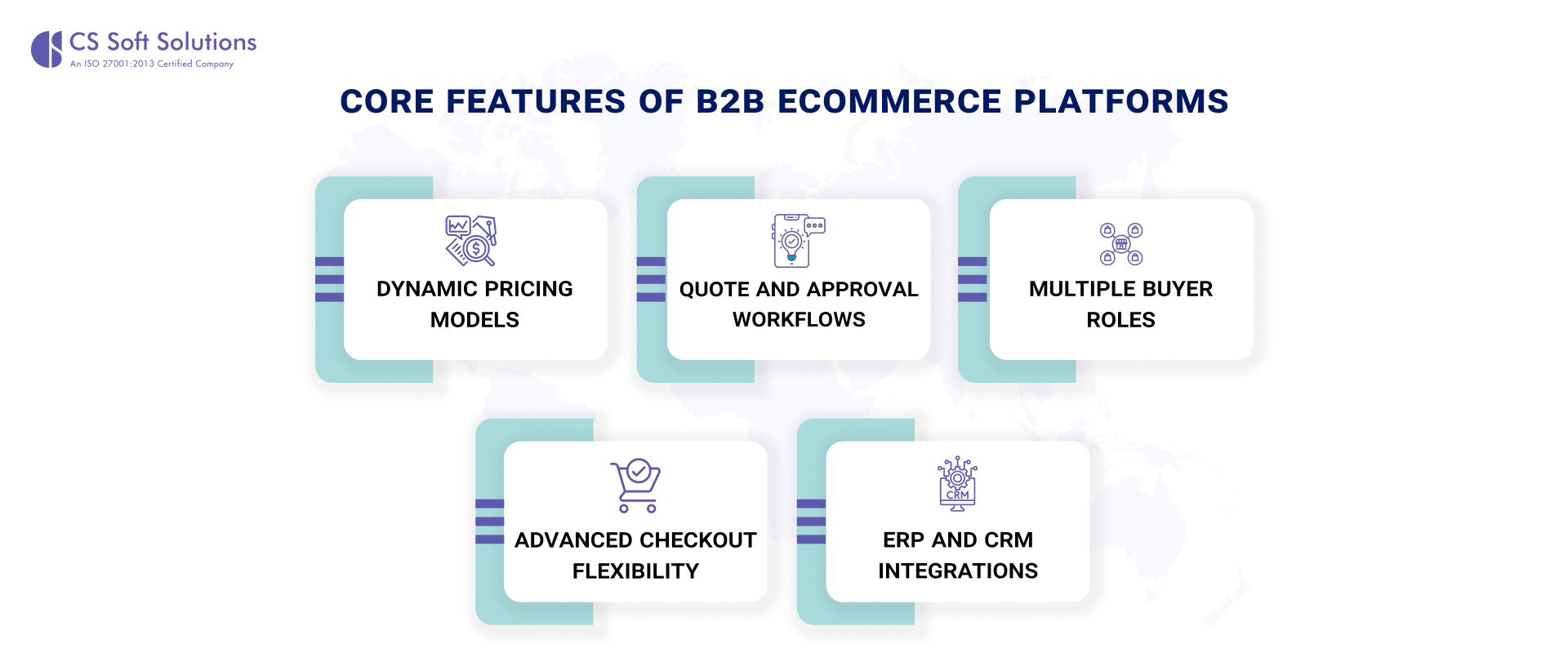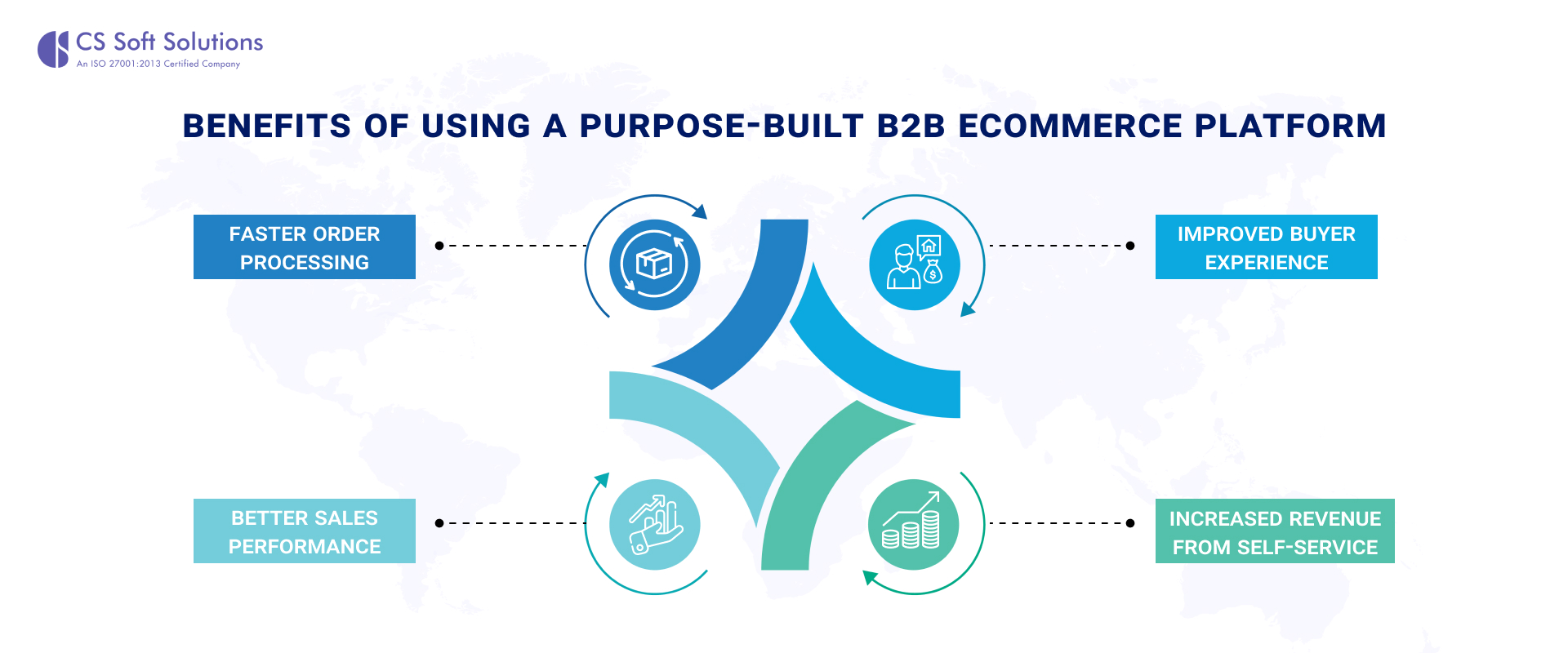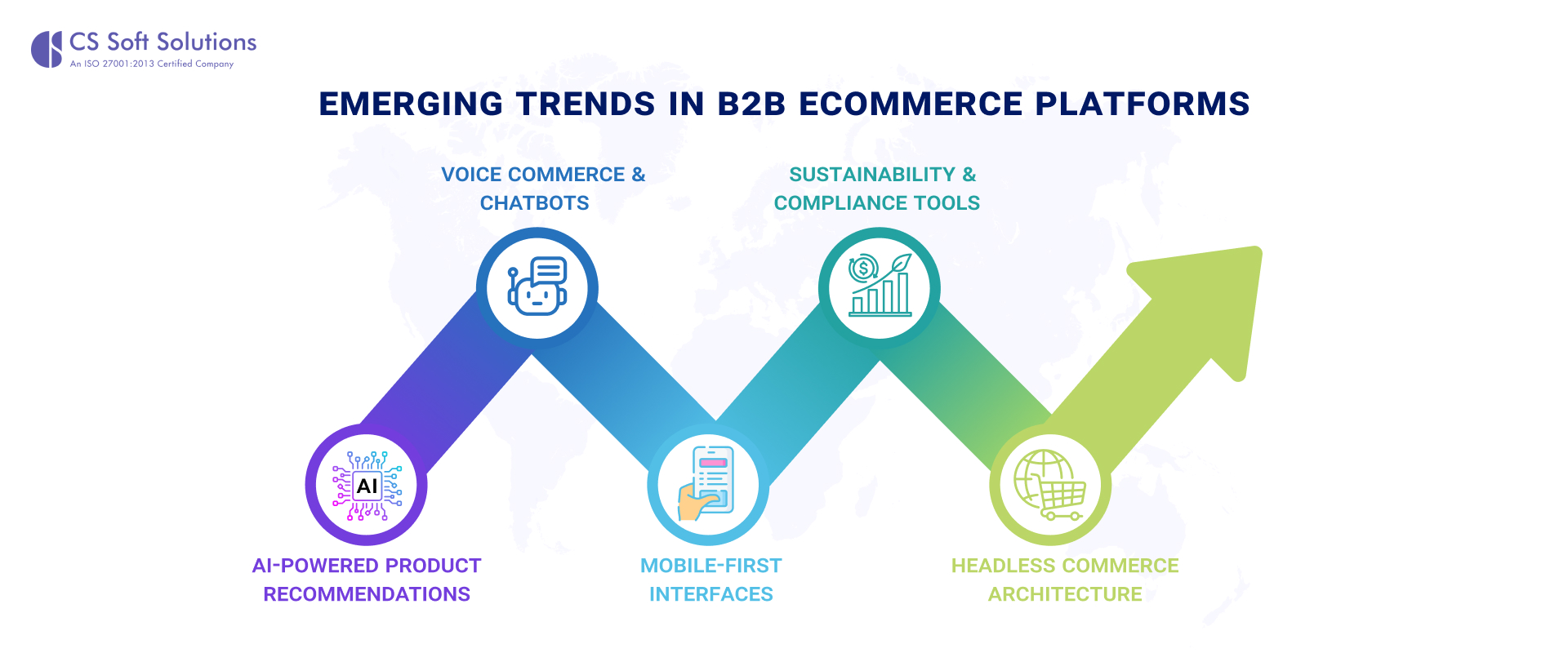 What Makes B2B eCommerce So Different?
What Makes B2B eCommerce So Different?
Do you think selling online is all about pretty product pages and next-day delivery? That may be for B2C, but B2B eCommerce is a different ball game altogether.
You’re not selling one coffee mug to a walk-in shopper. You’re selling to bulk-to-bulk buyers, you’ve negotiated contracts, tax-exempt customers, and buying cycles extending months. And that’s when B2B eCommerce sites step in. They’re particularly to handle complex pricing models, multiple decision authorities, and business rules that plain vanilla B2C systems just can’t handle.
If you’re in manufacturing, wholesale, distribution, or enterprise sales, understanding how these sites operate is essential to staying competitive—and profitable.
Let’s get into how they work, the advantages they provide, and the trends that are defining their future.
Core Features of B2B eCommerce Platforms
The most effective B2B platforms are more than simply taking products online—they’re about streamlining the entire business-buying experience.
Here are some features that distinguish B2B eCommerce platforms from typical eCommerce installations:
- Dynamic Pricing Models
You can’t show the same price to every buyer. B2B eCommerce platforms offer:
- Customer-specific pricing
- Volume-based discounts
- Tiered pricing models
- Contract-based pricing structures
Buyers expect transparency, but also customization. Good platforms strike that balance.
- Quote and Approval Workflows
Unlike B2C “Add to Cart” models, B2B purchases often start with a quote request. Platforms must support RFQs (Requests for Quotation), multi-level approval workflows, and the ability to negotiate pricing before checkout.
- Multiple Buyer Roles
Not every user on a buyer’s team is a decision-maker. B2B platforms let companies assign roles like
- Buyer
- Approver
- Finance Manager
- Warehouse Receiver
This granular control over who can see what—and do what—helps streamline procurement and prevent errors.
- Advanced Checkout Flexibility
From purchase orders and net terms to tax exemption status and freight shipping calculations, B2B checkout needs far more flexibility than a one-click buy button.
- ERP and CRM Integrations
Most B2B companies already use internal systems to manage inventory, shipping, or customers. A strong platform needs to integrate smoothly with
- ERP systems (like NetSuite, and SAP)
- CRMs (like Salesforce)
- Inventory and logistics tools
This is where ecommerce development services become essential. They bridge the gap between your front-end site and back-end systems.
Benefits of Using a Purpose-Built B2B eCommerce Platform
Now that you know what these platforms offer, let’s look at why investing in one is a game-changer.
Faster Order Processing
Automation speeds up every part of the transaction—from cart to fulfillment. No more manual entry or miscommunication between sales and warehouse teams.
Improved Buyer Experience
B2B buyers are now expecting the same ease of use they get on Amazon. Clean UX, saved order history, instant reordering, and intuitive navigation are no longer optional.
Better Sales Performance
Your reps can stop chasing orders and instead focus on upselling strategic partnerships, and high-value accounts.
Increased Revenue from Self-Service
Buyers love the freedom to shop when they want. Self-service portals reduce friction and let buyers manage accounts, reorders, and invoices without waiting on sales reps.
Why Managed eCommerce Services Are a Smart Investment
Launching and scaling a B2B eCommerce platform is no small task. It surely requires deep technical expertise, industry-specific knowledge, and ongoing maintenance. That is the main reason why companies are focusing on managed eCommerce services.
Instead of building your entire infrastructure in-house, a managed provider takes care of :
- Hosting and uptime guarantee
- Security updates and compliance
- Performance tuning and speed optimization
- UX improvements based on analytics
- Ongoing feature enhancements
It helps to reduce the dependency on the development part and allow your internal team to focus on growth. It also ensures your site remains competitive as technology and buyer expectations evolve.
Why Magento Is a Top Choice for B2B—and Why You Need Certified Experts
Among all the available options, Magento (now Adobe Commerce) stands out as one of the most powerful B2B eCommerce platforms. It’s flexible, scalable, and highly customizable.
Magento supports:
- Custom catalogs and pricing
- B2B-specific checkout flows
- Multiple storefronts for different buyer segments
- Headless architecture for high-performance design
- Complex tax and shipping logic
But here’s the catch—Magento’s power comes with complexity. Implementing it correctly requires a team that understands not only the tech but also the business logic behind B2B operations.
That’s where certified Magento eCommerce services shine.
Certified Magento partners bring:
- Expertise in secure deployment and architecture
- Optimization of performance and scalability
- Custom module development for unique business needs
- Up-to-date knowledge of Adobe’s roadmap and features
It’s not just about launching a site. It’s about launching the right site—built to last and grow.
Emerging Trends in B2B eCommerce Platforms
B2B commerce is evolving fast. If you want to stay ahead, keep your eye on these trends:
- AI-Powered Product Recommendations
AI isn’t just for Netflix suggestions. In B2B, smart engines suggest parts, accessories, and reorders based on previous behavior or inventory usage.
- Voice Commerce & Chatbots
B2B buyers want quick answers. AI-driven chatbots and voice-enabled search tools are making digital transactions faster and more efficient.
- Mobile-First Interfaces
Even B2B buyers are placing orders from their phones. Responsive, mobile-first design is now a must—not a maybe.
- Sustainability & Compliance Tools
Today’s buyers care about ethics. Platforms that integrate sustainability reporting, product lifecycle data, or compliance dashboards are gaining favor in regulated industries.
- Headless Commerce Architecture
Separating your front-end experience from the backend logic gives brands more freedom to design high-performing, personalized user experiences. Headless is fast becoming the future for enterprise-grade platforms.
Final Thoughts: Picking the Right B2B eCommerce Platform
If you’ve made it this far, one thing should be clear: not all eCommerce platforms are built for B2B. The tools you need as a wholesaler, manufacturer, or distributor go far beyond what most plug-and-play systems offer.
From personalized buyer portals to seamless integrations, your platform needs to reflect the way your business works.
The good news? You don’t have to figure it out alone.
Let’s Build Something Powerful Together.
Whether you’re exploring Magento, migrating from legacy systems, or scaling your existing site—partnering with the right team makes all the difference.
We at CS Soft Solutions India Pvt. Ltd. specialize in certified Magento eCommerce services, custom eCommerce development, and fully managed eCommerce services tailored to B2B businesses.
Want to launch smarter and scale faster? Let’s talk. Schedule a free consultation today and discover what your ideal B2B platform could look like.




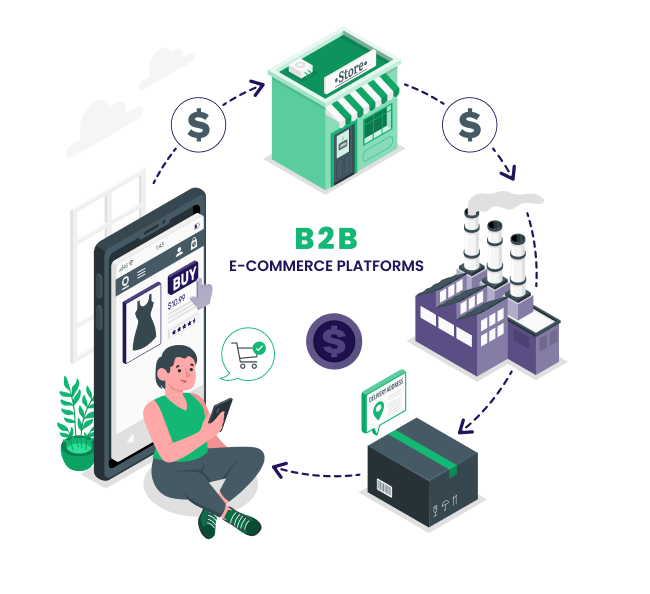

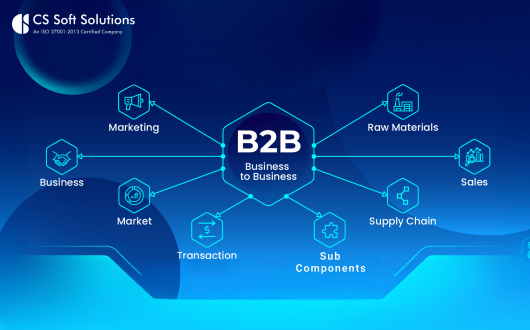 What Makes B2B eCommerce So Different?
What Makes B2B eCommerce So Different?